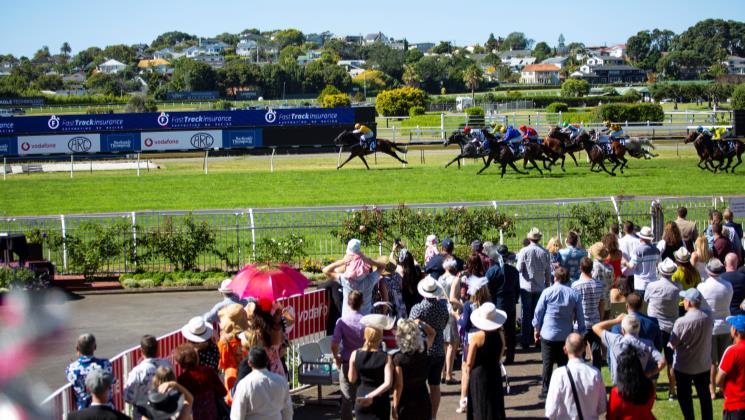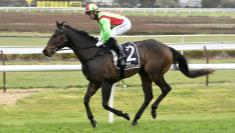
10 things you may not know about the NZ Derby…
The $600,000 first prize in Saturday’s $1 million Vodafone NZ Derby is the richest purse in New Zealand thoroughbred racing. The Karaka Million 2YO and the Karaka Million 3YO Classic also have an overall stake of $1 million but have a different distribution formula. First prize in the Karaka 2YO is $550,500 and $530,500 for the 3YO race.
The modern New Zealand Derby was established in 1973, when the New Zealand classic races were revamped. Till then, the New Zealand Derby had been run at Riccarton in the spring, while Ellerslie had been the home of the Great Northern Derby. The Great Northern Derby was discontinued when the NZ Derby was transferred to Ellerslie, while Riccarton Park became the home of the Two ThousandGuineas and One Thousand Guineas.
Every NZ Derby runner earns at least $6,000 which goes some way to offsetting the entry costs. It costs a minimum of $11,787.50 in entry fees to contest the Derby. The final late nomination fee, which was required for Two Illicit, was $30,000, though this included the $7,935.00 final entry fee.
New Zealand Cup 12, New Zealand Derby 0. That is the contrasting record for women riders in two of New Zealand’s most famous races. Female riders can’t stop winning the NZ Cup at Riccarton including the last eight – while the Derby dais at Ellerslie has remained exclusively for male riders. Four female jockeys – Danielle Johnson (Scorpz), Sam Collett (Shakespeare), Sam Spratt (Lochwinnoch) and Rosie Myers (Platinum Spirit) will on Saturday attempt to claim a prize that has been strangely elusive.
Australian horses and horsemen have had a large impact on the NZ Derby in recent years. Three Australian-bred horses – Crown Prosecutor (2019), Rangipo (2016) and Mongolian Khan (2015) have been successful in the last five years, while Coniston Bluebird (2009) and Redoute’s Dancer (2007) were bred and trained in Australia. Four Australian-bred horses – favourite Dragon Leap (by Pierro), Sherwood Forest (Fastnet Rock), Platinum Road (Declaration of War) and Don Bosch (Uncle Mo) - will run this year.
Vinnie Colgan, who will partner Two Illicit on Saturday, has been the dominant rider in modern Derby history. Colgan, 44, has won the Ellerslie classic six times. His first Derby triumph came in 1995, on Roysyn and was followed by Zonda (1997), Hades (1999), Redoute’s Dancer (2000), Habibi (2013) and Rangipo (2016). This year, Colgan will partner with Two Illicit.
Dragon Leap was the most expensive yearling buy in the 2020 Derby field. The Pierro gelding was a A$1.05m buy at the 2018 Sydney Easter yearling sale. He is a half-brother to the Group I Randwick Guineas winner Inference and their dam, Pontiana, is a Group-placed Redoute’s Choice mare. Ten of the Derby field were offered at auction, though two were passed in and Dragon Leap, was the only one to make more than $100,000. The cheapest was Reggiewood, who was a $34,000 buyback in Book 2 at Karaka.
Two Cambridge stables will provide more than a third of the New Zealand Derby field. Andrew Campbell will have three runners - Peloton, Tibetan and Vladivostok - a notable achievement for a small stable, and training partners Roger James, who has feasted on the Derby spoils in the past, and Robert Wellwood will also have three contenders. Two Illicit is the main hope for James and Wellwood, who will also be represented by Reggiewood and Monlula. Just three stables are responsible for the six central districts runners, with Lisa Latta, Peter Didham and the Johno Benner and Hollie Wynyard partnership all having two runners.
The term Derby was coined in the 18 th century when the 12th Earl of Derby and some other English racing supporters decided to establish a new three-year-old race at the Epsom Racecourse. Legend has it that Lord Derby and Jockey Club chairman Sir Charles Bunbury tossed a coin over the name. Bunbury might have lost the toss then but had the satisfaction of winning the first Epsom Derby, in 1780, 60 years before the signing of the Treaty of Waitangi. However, Lord Derby did win the race with his name attached a few years later.
The original Derby has spawned a host of replicas. The Kentucky Derby would rank as the most notable, but more than 30 countries now stage a Derby and the races include the Jamaica Derby, Puerto Rico Derby, Polish Derby, Spanish Derby, Slovak Derby, Swiss Derby, Greek Derby, Mediterranean Derby (Turkey), Ecuador Derby and Mexico Derby.









.jpg)